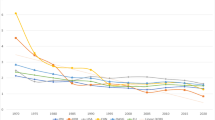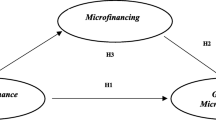Since 1988, Vietnam’s private higher education sector has developed into an integral part of the higher education system. Nevertheless, we know very little about who owns private universities, or what their management models look like. Interviews with institutional leaders, policy-makers, and the analysis of archived policy documents reveal that ownership models of Vietnamese private universities are considerably diverse. In general, almost all ownership models that exist in worldwide private higher education sectors—i.e., venture, enterprise, shareholder, and foreign—are reflected in the case of Vietnam. However, we highlight that business corporations own and manage many of Vietnam’s private universities. Our data also finds a parallel between the development of higher education privatization and the state’s persistent efforts to keep collective ownership—a Communist ideology signature—in practice. We conclude the article with a discussion on how ownership diversity in private higher education reflects the remarkable changes—more specifically the growing pluralism—in Vietnam’s political economy.
Similar content being viewed by others
Notes
Neither of the two newly licensed nonprofit universities—both of which were founded by Vietnamese investors—has started recruitment yet.
Document 7369, Government’s Office Collection, National Archives III.
During our data collection, we heard information of foreign investors becoming strategic shareholders at some private universities. However, we do not discuss the matter in details here, due to the lack of information.
References
Abbott, M. (2005) Private higher education penetration into a mature education market: The New Zealand experience. Program for Research on Private Higher Education, University at Albany, State University of New York. PROPHE Working Paper No.6. https://prophe.org/en/working-papers/private-higher-education-penetration-into-a-mature-education-market-the-new-zealand-experience/, accessed March 12, 2020
Agarwal, P. (2008) Privatization and internationalization of higher education in the countries of South Asia: An empirical analysis. Indian Council for Research on International Economic Relations (ICRIER). http://www.saneinetwork.net/pdf/SANEI_VIII/7.pdf, access March 12, 2020
Altbach, P. G., Choi, E., Allen, M., and de Wit, H. (Eds.) (Forthcoming). A Special Kind of University: Family-Owned/Managed Higher Education Institutions.
Altbach, P. G. (2015) ‘Universities: Family Style’, International Higher Education 39:10–12.
Angulo, A. J. (2016) Diploma mills: How for-profit colleges stiff students, taxpayers, and the American dream. Baltimore, MD: Johns Hopkins University Press.
Bernasconi, A. (2011) ‘A legal perspective on “privateness” and “publicness” in Latin American higher education’, Journal of Comparative Policy Analysis: Research and Practice 13(4): 351–365.
Buckner, E. (2018) ‘The growth of private higher education in North Africa: A comparative analysis of Morocco and Tunisia’, Studies in Higher Education 43(7): 1295–1306.
Casta, A., and Levy, D. C. (2016) ‘Private Higher Education: Even France, Even For-Profit’, International Higher Education 85: 30–31.
Chae, J.-E., and Hong, H. K. (2009) ‘The expansion of higher education led by private universities in Korea’, Asia Pacific Journal of Education 29(3): 341–355.
Cottom, T. M. (2017) Lower ed: The troubling rise of for-profit colleges in the new economy, New York, NY: The New Press.
Floyd, C. E. (2005) ‘For-profit degree-granting colleges: Who are these guys and what do they mean for students, traditional institutions, and public policy?’ in Higher Education: Handbook of Theory and Research: Volume 20. Dordrecht, the Netherlands: Springer, pp. 539–589
Gainsborough, M. (2003) Changing political economy of Vietnam: The case of Ho Chi Minh City, London: Routledge Curzon.
Gainsborough, M. (2010) Vietnam: Rethinking the state, London & New York: Zed Books.
Geiger, R. L. (1986) Private sectors in higher education: Structure, function and change in eight countries, Ann Arbor, MI: University of Michigan Press.
Hayden, M., and Khanh, D. V. (2010) ‘Private higher education in Vietnam’, in G. Harman, M. Hayden and T. Nghi Pham (Eds.) Reforming higher education in Vietnam: Challenges and priorities, Dordrecht, The Netherlands: Springer, pp. 215–225.
Hayhoe, R., Lin, J., and Tang, B. (2012) ‘Yellow River University of Science and Technology—Pioneer of Private Higher Education’, in R. Hayhoe, J. Li, J. Lin and Q. Zha (Eds.) Portraits of 21st Century Chinese Universities: In the Move to Mass Higher Education, Dordrecht: Springer, pp. 374–399
James, E. (1991) ‘Private higher education: The Philippines as a prototype’, Higher Education 21: 189–206.
James, E. (1993) ‘Why do different countries choose a different public-private mix of educational services?’, The Journal of Human Resources 28: 571–592.
Kinser, K. (2005) ‘A profile of regionally accredited for-profit institutions of higher education’, in B. Pusser (Ed.) Arenas of entrepreneurship: Where nonprofit and for-profit institutions compete, San Francisco, CA: Jossey-Bass, pp. 69–84.
Kinser, K. (2006) From main street to Wall street: The transformation of for-profit higher education, San Francisco, CA: Jossey-Bass.
Kinser, K. (2010) ‘A global perspective on for-profit higher education’, in G. C. Hentschke, V. M. Lechuga, and W. G. Tierney (Eds.) For-profit colleges and universities: Their markets, regulation, performance, and place in higher education 1st ed, Sterling, VA: Stylus Pub, pp. 145–170.
Kinser, K., and Levy, D. C. (2006) ‘For-profit higher education: U.S. tendencies, international echoes’, In J. Forest and Phillip. G. Altbach (Eds.) The International Handbook of Higher Education, New York, NY: Springer, pp. 107-119.
Knight, J. (2008) Higher education in turmoil: The changing world of internationalisation, Rotterdam, the Netherlands: Sense.
Knobel, M., and Verhine, R. (2017) Brazil’s For-Profit Higher Education Dilemma. International Higher Education 89: 23-24.
Kruss, G. (2005) ‘Distinct pathways: Tracing the origins and history of private higher education in South Africa’, Globalisation, Societies & Education 3(3): 261–279.
Levy, D. C. (Forthcoming) A world of Private higher education.
Levy, D. C. (1986) Higher education and the state in Latin America: Private challenges to public dominance, Chicago, IL: University of Chicago Press.
Levy, D. C. (1992) ‘Private institutions of higher education’, in B. R. Clark and G. Neave (Eds.) The encyclopedia of higher education, Vol. 2, New York, NY: Pergamon Press, pp. 1183–1195.
Levy, D. C. (1996) Building the third sector: Latin America’s private research centers and non-profit development, Pittsburgh, PA: University of Pittsburgh Press.
Levy, D. C. (2003) Profits and practicality: How South Africa epitomizes the global surge in commercial private higher education. Program for Research on Private Higher Education, University at Albany, State University of New York. PROPHE Working Paper No.2. http://prophe.org/en/working-papers/profits-and-practicality-how-south-africa-epitomizes-the-global-surge-in-commercial-private-higher-education/, access March 12, 2020
Levy, D. C. (2010) ‘Viewing private higher education: How much, where, why, and what?’, in International Encyclopedia of Education, Oxford, UK: Elsevier, pp. 622–627.
Levy, D. C. (2011) ‘Public Policy for Private Higher Education: A Global Analysis’, Journal of Comparative Policy Analysis: Research and Practice 13(4): 383–396.
Levy, D. C. (2018a) ‘Global private higher education: An empirical profile of its size and geographical shape’, Higher Education 76(4): 701–715.
Levy, D. C. (2018b) ‘The Vanishing Public Monopoly’, International Higher Education 94: 24-25.
Li, J., Lin, J., and Wang, G. (2012) ‘Xi’an International University—Transforming Fish into Dragons’, in R. Hayhoe, J. Li, J. Lin, and Q. Zha (Eds.) Portraits of 21st Century Chinese Universities: In the Move to Mass Higher Education, Dordrecht: Springer, pp.
Lin, Jin. (1999) Social transformation and private education in China, Westport, CT: Praeger.
Lin, Jing, Zhang, Y., Gao, L., and Liu, Y. (2005) ‘Trust, Ownership, and Autonomy: Challenges Facing Private Higher Education in China’, China Review 5(1): 61–81.
Liu, X. (2020) ‘The Development of Private Universities in Socialist China’, Higher Education Policy 33(1): 1–19.
McCowan, T. (2007) ‘Expansion without equity: An analysis of current policy on access to higher education in Brazil’, Higher Education: The International Journal of Higher Education and Educational Planning 53(5): 579–598.
Mabizela, M., Subotzky, G., and Thaver, B. (2000) The emergence of private higher education in South Africa: Key issues and challenges, Cape Town: University of the Western Cape, Education Policy Unit.
Maldonado, A. M., Cao, Y., Altbach, P. G., Levy, D. C., and Zhu, H. (2004) Private higher education: An international bibliography, Greenwich, CT: Information Age Pub.
Marginson, S. (1997) ‘Imagining Ivy: Pitfalls in the Privatization of Higher Education in Australia’, Comparative Education Review 41(4): 460–480.
Martins, C. B. (2013) ‘Reconfiguring higher education in Brazil: The participation of private institutions’, Análise Social 48(208): 622–658.
Ministry of Education and Training (2019) Statistics for Higher education 2017-2019 [Số liệu thống kê giáo dục đại học 2017-2018] [Ministry of Education and Training]. https://moet.gov.vn/thong-ke/Pages/thong-ko-giao-duc-dai-hoc.aspx?ItemID=5877, access March 12, 2020
Oncu, A. (1971) Higher education as a business: Growth of a private sector in Turkey. PhD dissertation, Yale University, New Haven, CT, USA.
Pham, T. N. (1997) Analysis of policy on privatization in Vietnamese higher education. Masters thesis, University of New England, New South Wales, Australia.
Phuong, L. D. (2006) Current development of non-public higher education institutions in Vietnam. PhD dissertation, Hiroshima University, Hiroshima, Japan.
Praphamontripong, P. (2010) Intra-sectoral diversity: A political economy of Thai private higher education. PhD dissertation, University at Albany, State University of New York, Albany, USA.
Salto, D. J. (2018) ‘To profit or not to profit: The private higher education sector in Brazil’, Higher Education 75(5): 809–825.
Shams, F., and Huisman, J. (2012) ‘Managing Offshore Branch Campuses: An Analytical Framework for Institutional Strategies’, Journal of Studies in International Education 16(2): 106–127.
Sharvashideze, G. (2005) Private higher education in Georgia, Paris: IIEP,UNESCO.
Sinh, H. X. (1995) ‘An entrepreneurial development: Thang Long university’, in D. Sloper and L. T. Can (Eds.) Higher Education in Vietnam: Change and response, Singapore: Institute of Southeast Asian Studies, pp. 200-210.
Su, S. (2011) Property ownership and private higher education in China: On what grounds?, Lanham, MD: Lexington Books.
Su, S. (2012) ‘The policy environment of private higher education in China: A discussion based upon property ownership rights’, Asia Pacific Education Review 13(1): 157–169.
Tamrat, W. (2018) ‘Family-Owned Private Higher Education Institutions in Africa’, International Higher Education 95: 23–24.
Taylor, S. (2015) ‘Corporate Universities and the Redefinition of a Medieval Brand’, International Higher Education 30: 3–5.
Taylor, S., and Paton, R. (2002) Corporate Universities: Historical Development, Conceptual Analysis & Relations with Public sector Higher Education, London: The Observatory on Borderless Higher Education, available on http://www.obhe.ac.uk/documents/view_details?id=566, access 12 March 2020.
Thomas, R. M. (1973) A Chronicle of Indonesian Higher Education: The First Half Century 1920–1970, Singapore: Chopmen Enterprises.
United States Senate Health, Education, Labor and Pensions Committee (2012) For Profit Higher Education: The Failure to Safeguard the Federal Investment and Ensure Student Success, Washington, DC: United States Senate Health, Education, Labor and Pensions Committee.
Varghese, N. V. (Ed.) (2006) Growth and expansion of private higher education in Africa, Paris: IIEP, UNESCO.
Wells-Dang, A. (2014) ‘The Political Influence of Civil Society in Vietnam’, in L. D. Jonathan (Ed.) Politics in contemporary Vietnam: Party, state, and authority relations, Basingstoke, GB: Palgrave Macmillan, pp. 162–183.
White, J. (2017) ‘For-profit higher education in the UK: The politics of market creation’, in T. McMillan Cottom and W. A. Darity (Eds.) For-Profit Universities: The Shifting Landscape of Marketized Higher Education, Springer International Publishing, pp. 27–52.
Yean, T. S. (2013) ‘Private higher education institutions: Development and internationalization’, in S. Y. Tham (Ed.) Internationalizing higher education in Malaysia: Understanding, practices, and challenges, Singapore: Institute of Southeast Asian Studies, pp. 66–86.
Zhang, L. (2016) International Branch Campuses in China: Quest for Legitimacy. PhD Dissertation, University at Albany, State University of New York, Albany, USA.
Acknowledgements
The author(s) disclosed receipt of the following financial support for the research, authorship, and/or publication of this article: This work is part of the Project “Solutions for Vietnamese non-state universities’ sustainable development” (Nghiên cứu đề xuất các giải pháp phát triển bền vững các trường đại học ngoài công lập ở Việt Nam) [KHGD/16-20.ĐT.017]—under The National Project for Science & Technology development 2016-2020.
Author information
Authors and Affiliations
Corresponding author
Ethics declarations
Conflict of interest
On behalf of all authors, the corresponding author states that there is no conflict of interest.
Additional information
Publisher's Note
Springer Nature remains neutral with regard to jurisdictional claims in published maps and institutional affiliations.
Rights and permissions
About this article
Cite this article
Chau, Q., Dang, B. & Nguyen, X. Patterns of Ownership and Management in Vietnam’s Private Higher Education: An Exploratory Study. High Educ Policy 35, 155–177 (2022). https://doi.org/10.1057/s41307-020-00199-6
Published:
Issue Date:
DOI: https://doi.org/10.1057/s41307-020-00199-6




